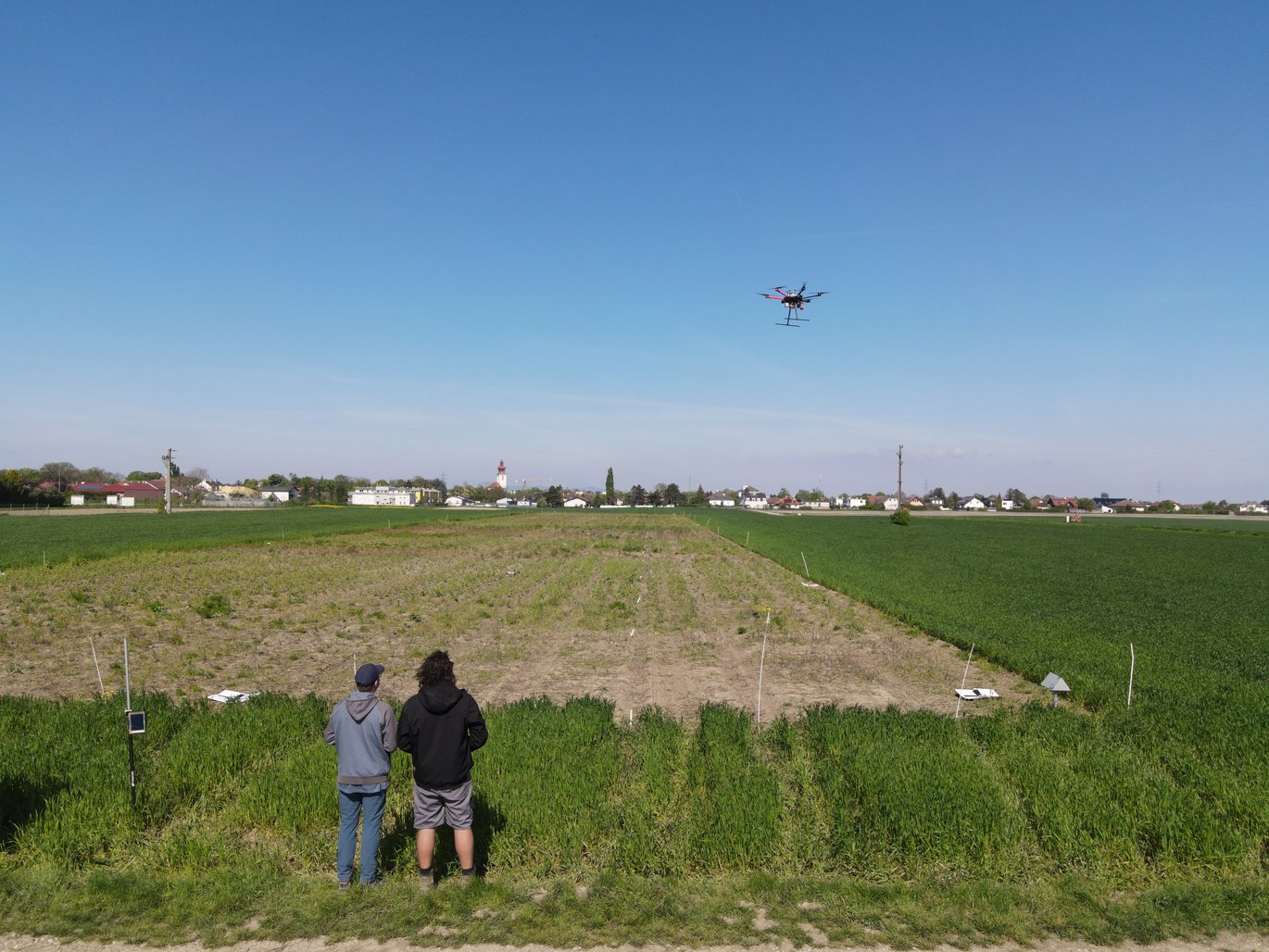Cutting-edge drone technology used to investigate plant health and soil compaction in the SoilCompaC project
Working with drones in the EJP Soil project SoilCompaC

In a ground-breaking effort to understand the relationship between plant health and soil compaction, researchers are utilising cutting-edge drone technology as part of the SoilCompaC project. Matthias Konzett, a project associate for the SoilCompaC project and a PhD candidate at the Federal Agency for Water Management in Austria, is leading the fieldwork and data analysis efforts involving drone data collection.
"We have a multispectral camera, and we thought that there is a special relationship between plant health and soil compaction," he explains. "We hypothesised that severely compacted soils affect plant growth negatively, and we aimed to measure this relationship using the multispectral camera integrated into the SoilCompaC project. However, our success has been mediocre thus far."
Wheat results came as a surprise
The research team has been working on two sites in the Eastern part of Austria, where rainfall is scarce. One site features winter wheat, while the other has maize. The compaction observed at the first site stems from long-term tractor driving on the same tracks over ten years. At the second site, the compaction was manually induced by driving a fully loaded slurry wagon over the soil after watering.
Regarding the results obtained, Matthias Konzett explains, "In the wheat field, we observed some beneficial effects on plant growth in the compacted tracks. The plants in these areas appeared more vital, with a darker and healthier green colour compared to the non-compacted areas. However, in the maize field, the differences were not visually discernible. We had to analyse the multispectral data and calculate vegetation indices to detect any variations, but they were not significant enough for us to conclude."
When asked about the lack of significant differences, Matthias Konzett states, "We initially anticipated more pronounced disparities between the compacted and non-compacted areas. Even though we used a pair-wise comparing of field parts close to each other to minimize bias, the variability in results is still high. For example, the headlands of the field showed the most discernible differences which are most likely caused by other factors influencing plant growth, such as water accumulation and uneven fertiliser distribution. Therefore, we excluded the headlands from our study."
New site will give more insight into the effect soil compaction has on plant growth
Regarding whether wheat prefers compacted soil, Matthias Konzett clarifies, "We cannot definitively state that wheat prefers compacted soil based on our findings. It is possible that the wheat plants in our study grew better because the non-compacted soil did not have the density preferred by wheat. Additionally, other factors such as increased water flow or increased manganese concentrations in compacted areas may have contributed to the improved growth."
To gain a better understanding of the complex interactions between climate, soil conditions, and plant types, the researchers plan to study a field with four different crop types at a new site in Petzenkirchen, Austria. This extended study aims to provide more comprehensive data and insights into the effects of soil compaction on plant growth.
Drones overcome limitations of traditional tools in soil science
The use of drones in this project has proven instrumental in overcoming the limitations of traditional point measurements and satellite imagery. Drones allow researchers to gather data at a scale that reveals the impact of specific tracks, which would otherwise be invisible in satellite images.
Excitement is building among the research team as they anticipate receiving this year's data, which promises to shed further light on the unexpected findings regarding wheat thriving in compacted soil. By expanding their research to include multiple sites and varying crop types, they hope to determine the factors influencing plant growth and ascertain whether soil compaction is ultimately beneficial or detrimental.
The collaboration with partners in the Netherlands and Belgium further enhances the project's data collection efforts, ensuring a broader dataset to analyse and draw conclusions from. With each new piece of information, the researchers inch closer to unravelling the mysteries surrounding plant health and soil compaction.